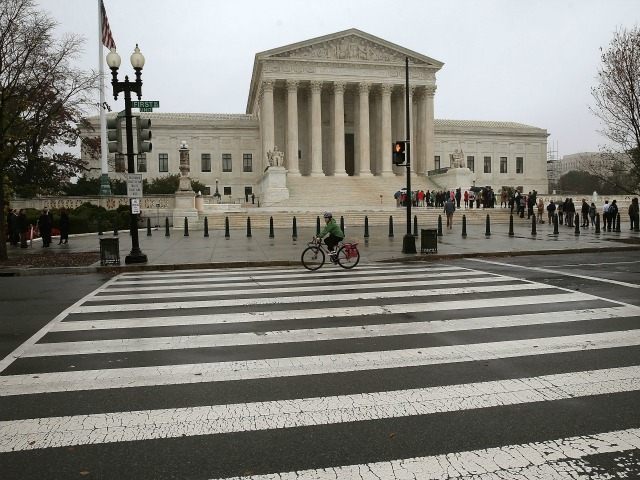The Supreme Court has stayed an order by a lower federal court which had directed North Carolina’s government to hold new state elections.
The top court’s decision on Tuesday will allow it to decide whether to hear arguments in a racially charged voting rights case, which may result in the Supreme Court limiting the states’ authority to decide legislators’ constituencies and to schedule state elections.
The federal Constitution requires that every ten years the United States must conduct a nationwide census. State legislatures redraw congressional and state legislative district lines after the census is complete, drawing those lines to make the number of persons in each district close to equal, taking into account other factors such trying to keep communities intact for purposes of representation.
After North Carolina’s most recent redistricting, several North Carolina voters sued, arguing that nine of North Carolina’s Senate districts and 19 of its House districts were unconstitutional racial gerrymanders. Previously, the Supreme Court has declared that it violates the Fourteenth Amendment’s Equal Protection Clause for lawmakers to draw legislative districts in such a way that they deliberately minimize the number of minority voters.
This new challenge in the U.S. District Court for the Middle District of North Carolina was assigned to a three-judge federal trial court, consisting of one judge from the federal court of appeals and two federal district judges. Federal law provides that parties may request such a three-judge court whenever suing over the constitutionality of statewide districting plans.
The federal court decided that some of the state’s districts were in fact unconstitutional gerrymanders, and ordered that new elections be held in 2017 to elect new lawmakers. The court said that “while special elections have costs, those costs pale in comparison to the injury caused by allowing citizens to continue to be represented by legislators elected pursuant to a racial gerrymander.”
In its Nov. 29, 2016 order, the trial court also claimed “The Court has the authority to shorten the terms of existing legislators, order special elections, and alter the residency requirements for those elections.”
“The Court concludes that March 15, 2017, is a reasonable deadline for allowing the State the opportunity to draw new districts,” it added.
North Carolina hired an experienced Supreme Court litigators—former U.S. Solicitor General Paul Clement—to represent the Tar Heel State. Clement appealed the three-judge panel’s decision directly to the U.S. Supreme Court.
The justices on January 10 issued a stay—meaning put on hold the district court’s order—until the High Court could decide whether to take the case for oral argument. Clement’s brief arguing why the case deserves the Supreme Court’s full consideration should be filed sometime in February.
So the first major election case since the historic 2016 election is underway, a case that likely would be heard this fall.
The Supreme Court caption is North Carolina v. Covington.
Ken Klukowski is senior legal editor for Breitbart News. Follow him on Twitter @kenklukowski.

COMMENTS
Please let us know if you're having issues with commenting.